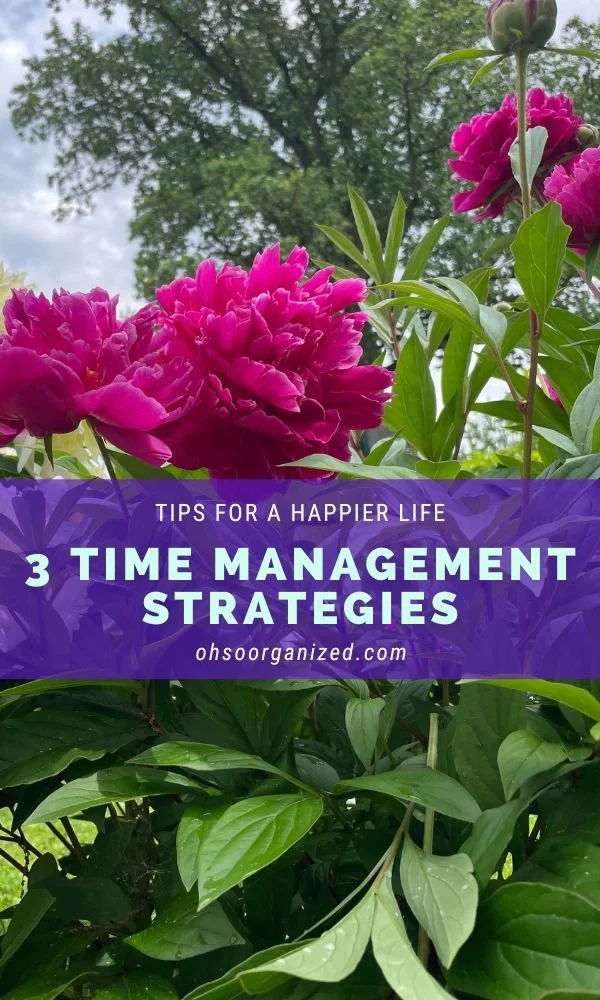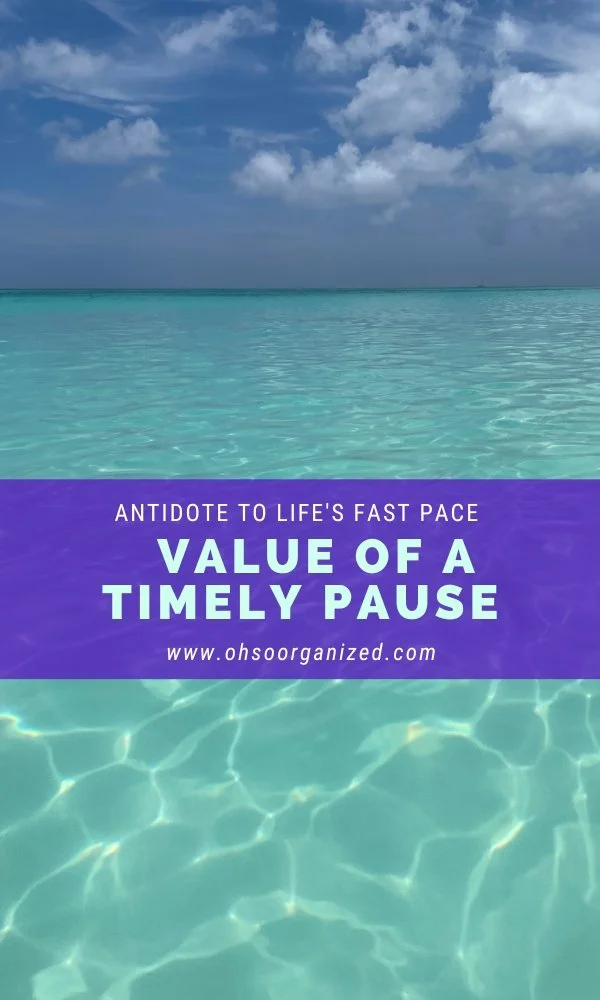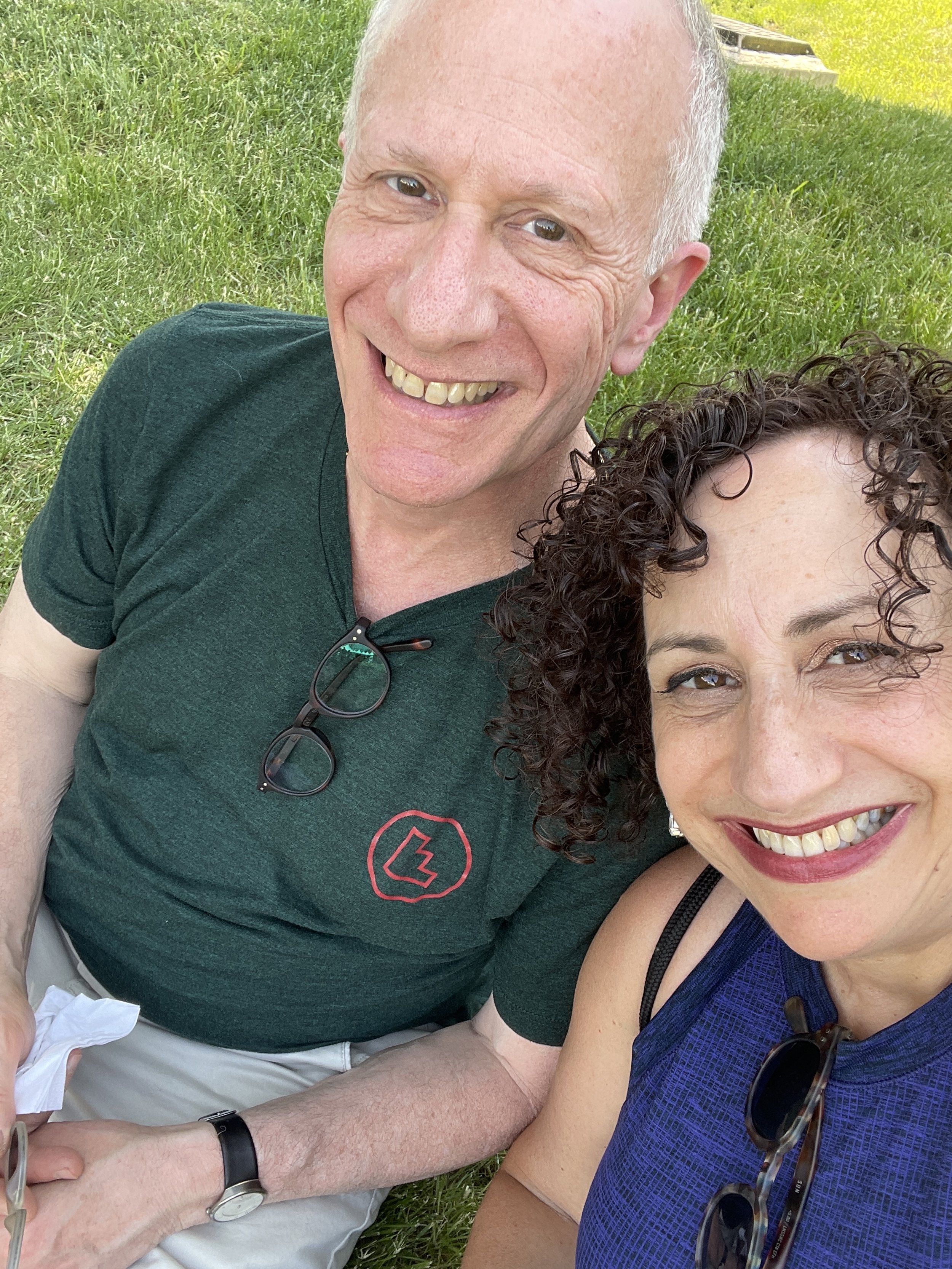When you think about how you manage time, do you consider the “happy” factor? It’s a given that you have 24 hours each day. How you use and feel about that time is where life gets interesting. With some minor tweaks, you can enhance the quality of your life by shifting your perspective and actions.
Happiness is not always considered when it comes to time management, yet it’s a powerful element to integrate.
Before I share three helpful time management strategies, let’s look at some common phrases to describe time and how you experience it.
Common Time Phrases
This first list of expressions reflects stress, frustration, and anxiety about the limitations and passage of time. Some common sayings are:
Running late
Behind schedule
On the clock
Not enough hours in the day
Time waits for no one
Time is of the essence
Lost time
Pressed for time
Time-sensitive
Killing time
Wasting time
Running out of time
Lost track of time
Living on borrowed time
Out of time
This second list of phrases describes positive feelings about time, highlighting enjoyment, appreciation, and making the most of every moment. These expressions include:
Top priority
High on the agenda
In the nick of time
All in good time
Perfect timing
Ahead of time
Time out
Time to spare
Right on time
Prime time
Good times
Quality time
The time of your life
Which phrases resonate most with you? Do you often experience stressful time-related situations, as reflected in the first list? Are more of your time-related encounters positive, like the phrases on the second list? Or are your encounters with and relationship to time somewhere between the extremes?
3 Time Management Strategies for a Happier Life
The time strategies described below can increase your happiness wherever you are in your relationship with time.
1. Happier Boundaries
What happens when you have few or no boundaries? Without boundaries, everyone else’s priorities come first. And you know what that means? Yours come last, if at all. You end up saying “yes” to things you wish you said “no” to. As a result, you might feel resentful, angry, frustrated, or annoyed.
Learning to set boundaries is a core time management skill. I continually work on boundary-setting because I didn’t understand that skill growing up. On the contrary, I learned how NOT to set boundaries. But I digress.
My insightful friend, colleague, and Professional Organizer Julie Bestry always shares excellent resources on her Paper Doll blog. She also has a great sense of humor. Her recent post, “52 Ways to Say NO to a Request So You Can Say YES to Your Priorities,” includes fabulous boundary-setting strategies.
To illustrate one of Julie’s points, she shares a 30-second YouTube clip from the TV show Friends. In the segment, Joey asks Phoebe if she wants to help assemble Ross’s furniture. Phoebe matter-of-factly says, “I wish I could, but I don’t want to.” Wow! What a clear (and hilarious) example of setting boundaries and saying no.
While Phoebe’s response to Joey’s request might not work for you, the idea behind it is worth considering. There are many ways to set boundaries, and learning to say no when you want to (whatever the reason) is essential. Knowing that skill lets you focus on your top priorities and what matters most.
“Learning to set boundaries is a core time management skill.”
2. Happier Activation
Now that you excel at boundary setting (yes, you!), your attention can focus on your most important people, projects, and tasks. However, while you cleared your schedule and said no to several requests, you’re having difficulty beginning your work.
The project you want to do, you can’t make progress on. You might need to plan, research, enlist help, gather resources, or take other actions. You’re thinking about how much time it will take to finish. Feelings of overwhelm are taking over. It all feels too big. How are you going to complete this or get started?
Let’s say it. You can’t do it all at once, so don’t expect that you will. Instead, let small time blocks be your ‘activation’ friend. Merge the concept of small blocks of time with an actual timer, and you’ll be amazed at what you can accomplish.
Review your calendar
Select a day that has availability
Select a small amount of time, such as 10, 20, or 30 minutes you commit to your project
Set the timer for those minutes
Work until the buzzer dings
Stop working
Check on how you’re doing – Are you done for the day? If so, schedule another day to repeat the process. Or do you want to work for another ‘x’ number of minutes? If so, reset your timer now to continue working. When the buzzer dings, repeat the last two steps.
During the past month, I’ve been preparing my latest workshop, How to Let That Sh*t Go. The small blocks of time strategy helped me progress and prepare to lead the workshop on June 6th. If you or someone you know wants to learn more or register, click here: https://www.ohsoorganized.com/workshops.
You will feel happier attending to what’s most important and meaningful. However, progress will not happen without the ability to activate. When you use small blocks of time effectively, you’ll handle things high on your agenda.
“Let small time blocks be your ‘activation’ friend.”
3. Happier Connections
Pausing in your day to savor one of life’s simple pleasures is an excellent time management strategy to enhance your happiness. If you are constantly on the go, consider integrating “Fika,” a Swedish practice.
Fika embodies the Swedish values of work-life balance, social interaction, and relaxation. Practicing Fika involves taking a short break, typically in the afternoon. People slow down, socialize, and build relationships. The break often includes coffee or another beverage and a small treat like pastries, cookies, or sandwiches.
The other day, I tried a variation of this with my husband. We skipped the beverage part and visited our local store, The Blue Pig. We sat, talked, and ate espresso chip ice cream cones with chocolate sprinkles. It was time well spent.
Which time management strategies bring you the most happiness? I’d love to hear your thoughts. I invite you to join the conversation.
If you feel time-challenged, reach out to Linda, me at linda@ohsorganized.com, call 914-271-5673, or schedule a Discovery Call. A life focused on what matters most is possible, especially with support.














